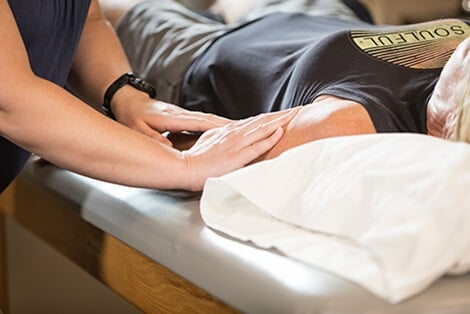Lymphedema Treatment
Individualized care to decrease lymphedema symptoms
Baylor Scott & White Institute for Rehabilitation - Outpatient Therapy team members are specially trained in the treatment of lymphedema/edema. Lymphedema is the abnormal accumulation of protein-rich fluid which causes swelling, most often affecting the arms or legs.
Causes of lymphedema
Lymphedema develops when lymphatic vessels are damaged, lymph nodes are surgically removed (often due to cancer treatment) or lymphatic vessels are impaired or missing.
Although there is no cure for lymphedema, physical and occupational therapy can dramatically decrease its symptoms so you can resume your everyday activities.

Signs and symptoms of lymphedema
- Increased limb swelling
- Restricted range of motion
- Limb heaviness
- Risk of infection (cellulitis)
- Joint pain
- Skin changes and tightness
- Reduction in lymphatic and vascular circulation
What to expect
At your first visit, your therapist will discuss your medical history, measure your affected and unaffected limb(s) and answer questions. He or she will listen to your concerns and needs and, with your goals in mind, develop a care plan that may include:
- Hands-on treatment including manual lymphatic drainage to initiate movement of lymph fluid
- Short stretch bandaging
- Compression garment education
- Education on proper skin care and protection of the affected area
- Independence in managing your condition
- Exercise programs to help increase muscle strength and improve lymph flow
During ongoing appointments, your therapist will adjust treatment as needed to help treat your pain and lessen your lymphedema symptoms.